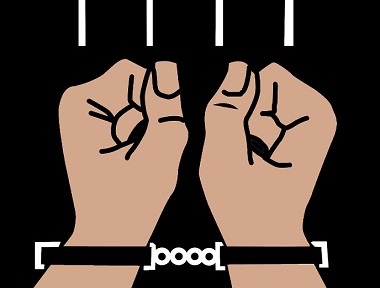Study: 1 Percent of Black Men in US Are Registered Sex Offenders
Research contends that sex offender registries reflect widespread, systemic bias
 |
|
According to UAlbany sociologist and study author Trevor Hoppe, "The number of publicly registered sex offenders is on the rise and is disproportionately from the same group that is targeted by criminal justice authorities -- black men."
|
ALBANY, N.Y. (May 19, 2016) -- One percent of all black men in the U.S. are registered sex offenders, and black men enter the sex offender registry at nearly twice the rate of white men, a new University at Albany study finds.
Researchers say these findings reveal how the uneven impact of America’s criminal justice system extends to sex crime policy, an area largely overlooked in the scientific literature.
"Our study reveals that a war on sex offenders appears to be gaining steam just as the war on drugs has lost its cultural legitimacy. The number of publicly registered sex offenders is on the rise and is disproportionately from the same group that is targeted by criminal justice authorities -- black men," UAlbany Assistant Professor of Sociology and study author Trevor Hoppe said.
In the study "Punishing Sex: Sex Offenders and the Missing Punitive Turn in Sexuality Studies" (Law & Social Inquiry, May 2016) researchers used public data sets to examine sex offender registration rates between 2005 and 2013, and analyzed databases of currently registered offenders to evaluate registration by race. The analysis surveyed 49 states; Maine and Washington, D.C., which do not publish race data, were not included.
An initial finding revealed the need for the study itself: despite the fact that more than 750,000 Americans are currently registered as sex offenders, very little social science research has examined how registration policies are enforced and which communities are impacted by them.
Exploring the Data
Rates of sex offender registration increased more than 24 percent in the U.S. between 2005 and 2013. Yet, that jump does not reflect broader trends in corrections; correctional supervision rates (including those in jail and prison as well as those on parole and probation) declined more than 10 percent during the same time period. However, state and federal policies enacted in the 1990s and 2000s vastly expanded the scope of sex offender registries. The study’s findings suggest that these policy shifts caused rates of sex offender registration to continue to grow even as rates in correctional supervision declined.
Embedded in those increased registration rates, researchers find that in every state but Michigan, a higher sex offender registration rate was found for blacks than for whites. In nine states, black Americans were registered as sex offenders at three times the rate of whites, including Connecticut, Florida, Iowa, Massachusetts, New Jersey, Oregon, Rhode Island, Washington, and Wisconsin. In Florida, South Dakota, Texas, and Utah, more than 2 percent of black men were publicly registered sex offenders.
Nationwide, the sex offender registration rate for black Americans (501 sex offenders per 100,000 adults) was more than twice that of whites (238 sex offenders per 100,000 adults). In addition, roughly one out of every 119 black men living in the 49 states analyzed were registered sex offenders, encompassing nearly 1 percent of all black men.
Concluded Hoppe, "Sex offenses are the only kind of crime that requires public registration. People convicted of murder are not required to share that information with their neighbors and community members after they serve their time. The idea behind these policies is that sex offenders are more likely to commit the same crime again and thus we ought to supervise them more closely, but countless studies have shown this to be false. These findings reveal that this irrational panic around sex is having troubling effects that ought to be considered by policymakers."
![]() For more news, subscribe to UAlbany's RSS headline feeds
For more news, subscribe to UAlbany's RSS headline feeds
A comprehensive public research university, the University at Albany-SUNY offers more than 120 undergraduate majors and minors and 125 master's, doctoral and graduate certificate programs. UAlbany is a leader among all New York State colleges and universities in such diverse fields as atmospheric and environmental sciences, business, education, public health,health sciences, criminal justice, emergency preparedness, engineering and applied sciences, informatics, public administration, social welfare and sociology, taught by an extensive roster of faculty experts. It also offers expanded academic and research opportunities for students through an affiliation with Albany Law School. With a curriculum enhanced by 600 study-abroad opportunities, UAlbany launches great careers.


